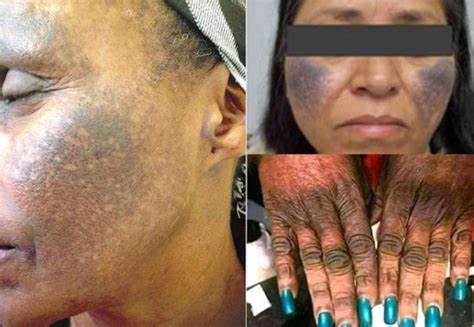It has become a common practice in Ghana for many women and some men to lighten their complexion and enhance their body parts.
With varied reasons for the skin and body enhancement, many people purchase various skincare creams and other medications like pills to have their desired light skin.
But it is emerging that skin bleaching creams and pills can potentially cause hypertension, otherwise known as high blood pressure.
Luv News explores the situation which is also seeing expectant mothers abuse some medications as they anticipate delivering light-skinned babies.
“I looked ugly whenever I watched myself in a mirror. I felt I had a disfigured body and skin so I decided to tone my skin. I wasn’t happy,” Aba Martin, popular Ghanaian Tiktoker, revealed on the Delay TV show as she confirmed her high school teacher made her feel less about herself.
Aba Dope, as she is popularly known, transmogrified her once dark skin to her present fair complexion after she felt she wasn’t in the best of shape and skin.
Her story reflects that of many young and old Ghanaian women who have for various reasons “toned” their skin.
Skin-bleaching, also known as skin lightening, skin toning, or whitening, is a global cosmetic practice to achieve a lighter skin tone.
It is often driven by cosmetic desires rooted in deep historical, economic, socio-cultural, and psychosocial factors.
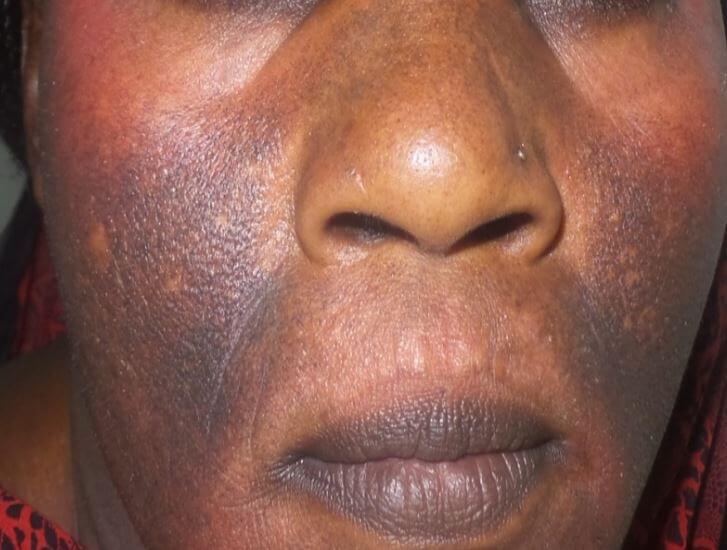
It involves the use of topical products containing corticosteroids, hydroquinone, mercury, or other agents to lighten the skin.
Kidney disease expert at the Komfo Anokye Teaching Hospital, Dr. Elliot Koranteng Tannor says the absorption of these chemical substance into the skin and eventually the body cause high blood pressure.
“When you absorb some of these steroids into your body for a long period of time which makes them fair, that would lead to hypertension. Steroids directly is the cause of hypertension. These steroids can also lead to diabetes. Diabetes, especially affecting the kidneys, when not controlled can lead to hypertension,” he said.
Corticosteroids, Hydroquinone, and Hypertension
Corticosteroids are a class of drugs that can reduce inflammation, suppress overactive immune system responses, and help with hormonal imbalances. They are used in treating several diseases including allergies and eczema – a skin disease.
Corticosteroids can cause hypertension by overstimulating the mineralocorticoid receptor, resulting in sodium retention in the kidney. This leads to volume expansion and an increase in blood pressure.
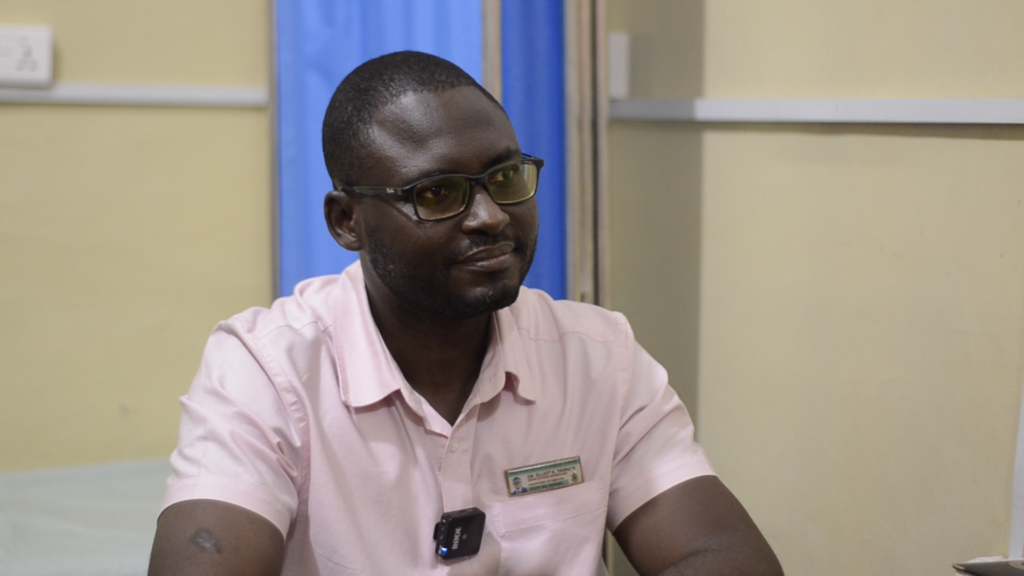
Hydroquinones on the other hand, is a skin-lightening agent which can be helpful when treating different forms of hyperpigmentation. But the excessive use of the chemical has been associated with diabetes, hypertension, and kidney disease.
A 2023 Integrated African Health Observatory report declared skin bleaching as a global public health concern with 80% of African women regularly using skin-whitening products.
The prevalence rate of the menace in Ghana is pegged at 39% as many women continue to resort to cosmetic creams to have a skin believed to be the most sought after by Ghanaian men.
“There may be some skin bleaching products that do not contain these steroids, like the natural products. But how many of these women are not aware of the component of the bleaching creams they use.
Disturbingly, some expectant mothers have caught on the vogue as they take in medications like Prednisolone in an attempt to bleach their unborn babies.
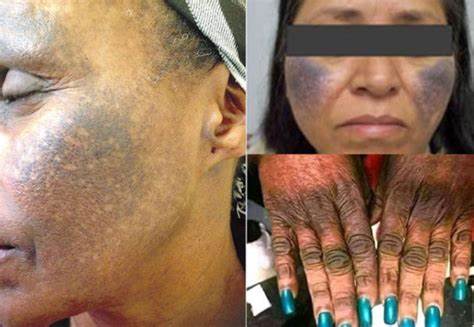
“Interestingly, some women who take these products are now doing that because they believe their children will turn out to be fair,” he revealed.
The Food and Drugs Authority in Ghana intensified a nationwide Post Market Surveillance (PMS) and enforcement on the ban of hydroquinone in cosmetic products but the sale of the product seems to be on the rise on the market.
“The FDA must have a look at the content of these products because the steroids are too high,” Dr. Koranteng Tannor said.
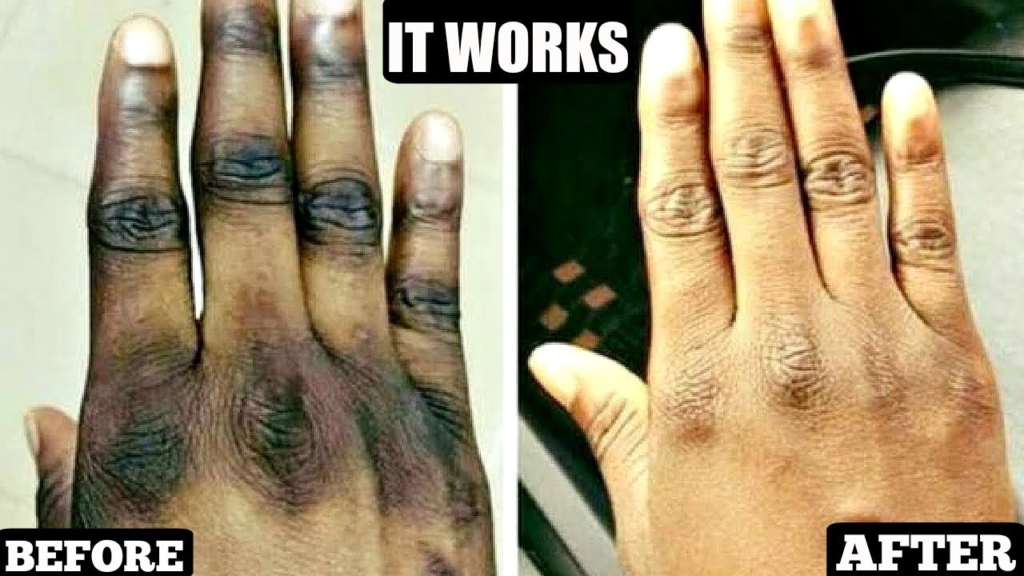
However, skin bleaching is only one of the many causes and risk factors of high blood pressure.
Hypertension, as a major cause of death amongst Africans, comes about as a result of various lifestyle habits.
While family history, and ageing are termed “uncontrolled” risk factors of the disease, poor dieting, intake of excess salt, and sedentary lifestyle are common causes of the disease.
“Having hypertension is not a death sentence. You can actually live long if you control your salt intake, control your dieting, take your medications and exercise regularly,” Dr. Koranteng Tannor advised.
Latest Stories
-
2025 budget will test Mahama’s push for private sector partnership – Dalex Finance CEO
12 minutes -
Why King Paluta deserves TGMA Artiste of the Year award
13 minutes -
A lawyer’s lawyer who rises above politics – Appiah-Kubi on Ayine
49 minutes -
‘I will respond at the appropriate time’ – Anim Addo on GFA charge
54 minutes -
‘An angel for Ghana’s justice system’ – Andy Appiah-Kubi on Ayine’s AG appointment
1 hour -
Today’s Front pages :Friday , January 10,2025
1 hour -
Not supporting Accra Lions will make me a coward – Anim Addo on Maxwell Hanson remarks
1 hour -
Energy Minister-designate John Jinapor, orders ECG to suspend all supply payments
2 hours -
Ato Forson’s appointment as Finance Minister ‘sensible’ – Franklin Cudjoe commends Mahama
2 hours -
Electrochem Ghana condemns raid on its warehouse by thugs claiming NDC affiliation
3 hours -
Calm restored at Ntotroso after Newmont breach attempt
3 hours -
GUTA optimistic about government addressing business concerns
3 hours -
We have only rice to feed SHS students in Greater Accra – CHASS Chairman
3 hours -
Presidency unveils official portrait of Mahama
3 hours -
Government must prioritise salt development to grow economy – MIIF Board Chair
3 hours

